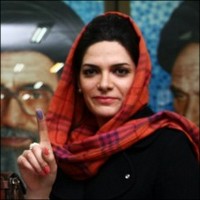{
"authors": [
"Christoph Bertram",
"Shahram Chubin",
"Fabrice Pothier"
],
"type": "event",
"centerAffiliationAll": "",
"centers": [
"Carnegie Endowment for International Peace",
"Carnegie Europe"
],
"collections": [
"Europe’s Southern Neighborhood"
],
"englishNewsletterAll": "",
"nonEnglishNewsletterAll": "",
"primaryCenter": "Carnegie Endowment for International Peace",
"programAffiliation": "",
"programs": [],
"projects": [],
"regions": [
"Middle East",
"Iran"
],
"topics": [
"Political Reform",
"Foreign Policy"
]
}
Iran’s New Politics: What Next?
Tue, June 30th, 2009
Brussels
The disputed outcome of the Iranian presidential election has created deep fractures within the regime between those advocating for change and more openness, and those defending the status-quo. The international community, particularly the United States, now faces the challenge of dealing with a regime embroiled in a legitimacy crisis.
Shahram Chubin, non-resident senior associate at Carnegie, and Christoph Bertram, a world-renowned academic on Iran’s political and economic development, discussed how the aftermath of the elections will change the way the West approaches Iran.
Highlights included...
- Christoph Bertram explained that although the Iranian regime may not be one which the U.S. seeks to legitimise through diplomatic ties, it should keep its hand outstretched on the basis of conducting relations with the Iranian people, rather than the regime.
- The election has made visible rifts among the Iranian elite that have quietly intensified over the last five years, explained Chubin. The elite fall into two different camps: those who emphasize democracy and political accountability, and those who emphasize legitimacy through religion and the Islamist revolution.
- Iran’s position as an international player has been significantly damaged by the aftermath of the elections. Prior to the elections, it was seen in the region as an exportable model of an independent and self reliant state, and it relied on this impression for its soft power as an international player, particularly in the Middle East.
Carnegie does not take institutional positions on public policy issues; the views represented herein are those of the author(s) and do not necessarily reflect the views of Carnegie, its staff, or its trustees.
Event Speakers
Christoph Bertram
Shahram Chubin
Former Nonresident Senior Fellow, Nuclear Policy Program
Chubin, who is based in Geneva, focuses his research on nonproliferation, terrorism, and Middle East security issues. He was director of studies at the Geneva Centre for Security Policy, Switzerland, from 1996 to 2009.
